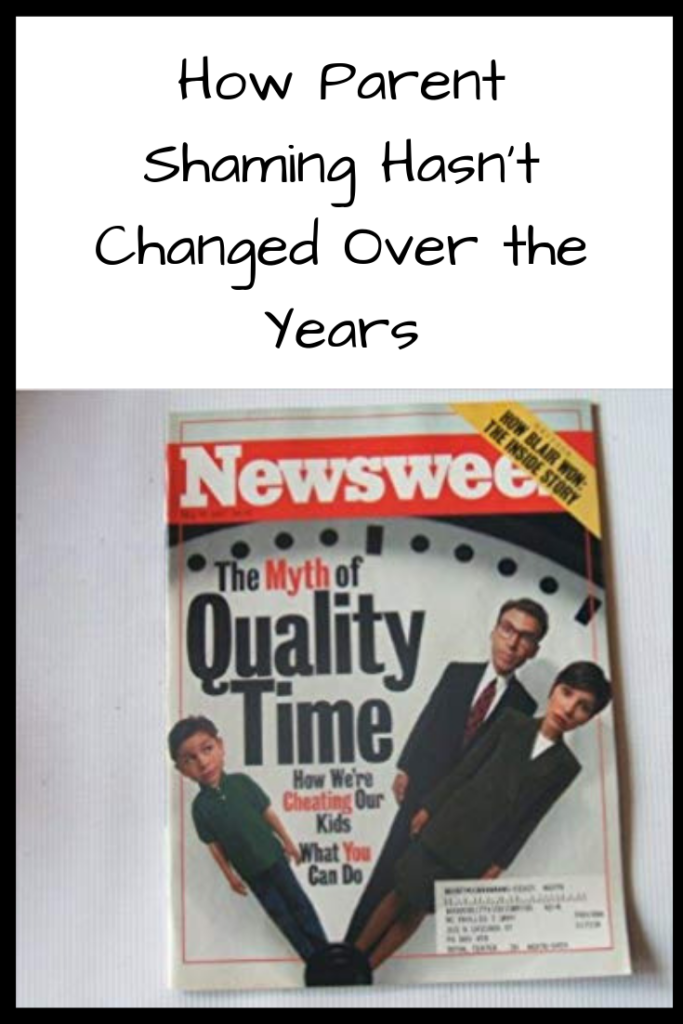
“The Myth of Quality Time: How We’re Cheating Our Kids” accused the headline to Newsweek magazine in zillion point font. Kids and parents lined up like hands on a clock. But it differed from most of the parenting articles I read in a key way – it was more than 20 years old.
I happened across the magazine in my in-law’s basement, as I was down there to wrap Christmas presents. It was sitting on top of a pile of magazines in a random cardboard box.
The article was written in 1997, when people were starting to question the phenomena of latchkey kids. I was 14. Having both parents in the workplace was the norm and the backlash against that was in full swing.
At that time, parents were spending less and less time with their kids. They were making it “quality time,” but that wasn’t enough. The era of Leave It to Beaver was over and only for the worst. Nothing could replace having mom there on call. (At one point, they quote someone who says, “Instead of nine hours a day with a child, we declare ourselves capable of getting the ‘same result’ with one, more intensely focused, total quality hour.”) While the second half of the article did address the role of dads and corporate culture, the first half was painfully shaming and judgmental.
Or alternatively, that time was an era of childhood freedom, when kids had plenty of free time and weren’t in so many structured activities. They were able to be self-directed without mom and dad helicoptering over them. They had to take responsibility because they were in charge of completing their homework and dealing with personal crises, not their parents.
After all, that’s how the 1980s and 90s is portrayed so often in the media today.
Finding that article opened my eyes to how the parenting practices we valorize now were criticized at the time. We look back with nostalgia-colored glasses. The “common wisdom” we take for granted is not so common. It’s rooted in cultural assumptions, historical context, and backlash against progress. Hilariously, a number of quotes in the article are word-for-word what people say is the fault of helicopter parenting today.
In fact, much of the parenting trends now emerge from the fears from that mythologized era. Risks associated with kids not being supervised resulted in the fears around lack of parental supervision. Articles such as these that emphasized how awful it was that parents didn’t spend enough time with their kids led to our generation’s neurosis about spending as much time with our kids as possible.
There’s a time and place for improving our parenting, but panicked articles about how awful we are is not the way to do it. Today’s parenting trends aren’t perfect, but we may look back on them much more kindly in 20 years.
So they next time you see an article about “parents these days,” cut yourself some slack. It’s likely that it’s not as black and white as these articles make it out to be.
For more encouraging thoughts on parenting, follow us on Facebook.
Shannon:
One of my first critical parenting moves was about this very concept of “quality time” as it was represented among young professionals in the late 1980s and in children’s/young adult novels around the same time into the 1990s – before your Time article.
And I do remember latchkey children of the 1970s and again into the 1990s.
This sort of thing is cyclical and non-linear especially when it feeds into the insecurities of the news cycle.